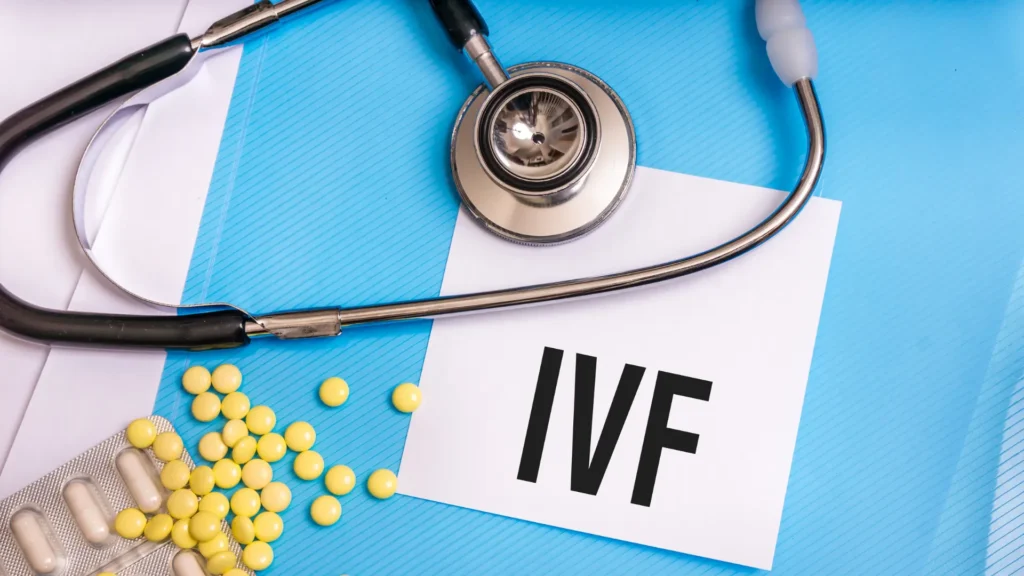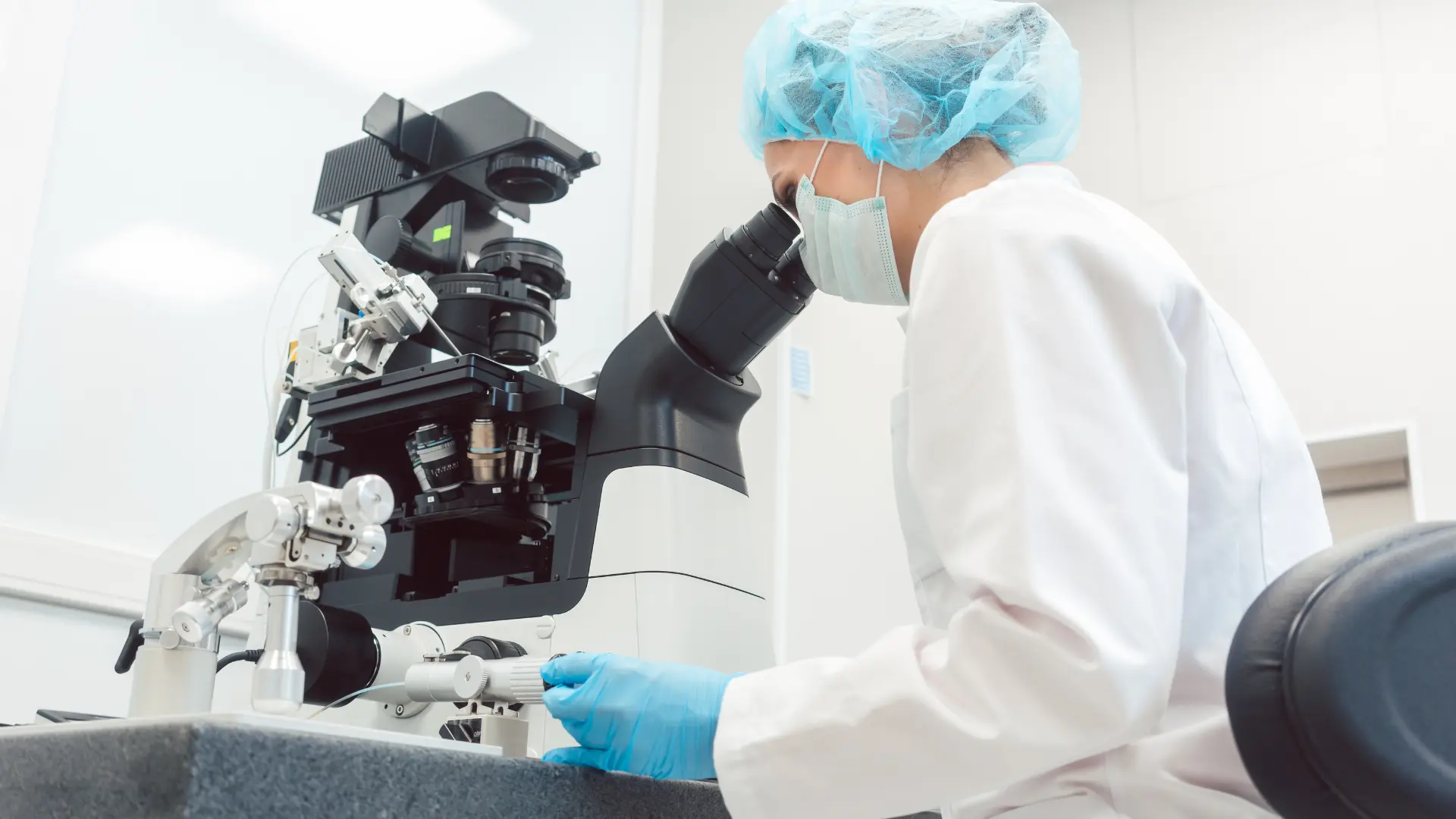When you and your partner embark on the journey to seek help for fertility challenges, you are often introduced to a new world of medical terms. Two of the most common fertility treatment you will hear about are IUI and IVF. Understanding the difference between these options can feel overwhelming, but having clear information is the first step towards feeling empowered and confident about your path forward.
My name is Dr. Vrushali Pillai, and as a Senior Consultant in Obstetrics & Gynaecology at Borneo Hospital, Thane – part of the Borneo Hospitals group with dedicated fertility services across Thane, Nashik, Chhatrapati Sambhaji Nagar, and Raipur City – a crucial part of my role is to demystify these procedures for couples. We believe in partnering with you, providing clear and compassionate guidance to help you make the best decisions for your family.
This article aims to be your guide to understanding IUI and IVF. We will explain what each Fertility Treatment involves, how they differ, and the factors that help us recommend the most appropriate option for you.
The Foundation of All Treatment: Diagnosis Comes First
Before we compare IUI and IVF, it’s essential to state that no Fertility Treatment is chosen at random. The first and most important step is always a comprehensive fertility evaluation for both partners. This helps us identify the underlying cause or causes of why conception has been difficult.
The results from your initial investigations – which may include blood tests to check hormones, ultrasound scans to assess the uterus and ovaries, and a semen analysis for the male partner – will guide our recommendations. At Borneo Hospital, we never use a one-size-fits-all approach; your treatment plan is always personalised.
Understanding IUI (Intrauterine Insemination):
Think of IUI as giving the sperm a helpful “head start” on their journey. It’s a simpler form of assisted conception where fertilisation still needs to happen naturally inside your body.
The IUI Process Step-by-Step:
- Ovulation Tracking / Mild Stimulation: Your natural menstrual cycle is monitored with ultrasound scans and sometimes blood tests to pinpoint the exact time of ovulation. In many cases, we may prescribe mild oral medications (like letrozole or clomiphene) for a few days to encourage the development of one or two mature eggs, which can slightly increase the chances of success.
- Sperm Collection and Preparation: On the day of your planned ovulation, your partner provides a semen sample. This sample is then taken to our lab, where it undergoes a special “washing” process. This procedure separates the healthy, motile (fast-moving) sperm from the rest of the seminal fluid.
- The Insemination Procedure: This is a very simple, quick, and usually painless procedure performed in our clinic. The concentrated sample of healthy sperm is loaded into a very thin, flexible tube called a catheter. The catheter is gently passed through your cervix, and the sperm are placed directly into your uterus, much closer to the fallopian tubes where the egg is waiting.
Who is a Good Candidate for IUI? IUI is often recommended for:
- Couples with unexplained infertility.
- Cases of mild male factor infertility (e.g., slightly low sperm count or motility).
- Women who have problems with their cervical mucus.
- Couples using donor sperm.
Key Requirements for IUI:
For IUI to have a chance of success, the female partner must have at least one open and healthy fallopian tube (as the egg and sperm must meet there), and there must be an adequate number of healthy sperm in the male partner’s sample after the washing process.

Understanding IVF (In Vitro Fertilisation): A More Advanced Approach
IVF is a more complex and powerful form of Fertility Treatment. The name ‘In Vitro’ literally means ‘in glass’, which refers to the fact that fertilisation happens outside the body in a specialised laboratory.
The IVF Process Step-by-Step (Simplified):
- Ovarian Stimulation: Unlike IUI, where we might aim for one or two eggs, in IVF, the goal is to stimulate your ovaries to produce multiple mature eggs. This involves a course of daily hormonal injections for approximately 8-14 days. Our nursing team provide thorough instructions to make this manageable.
- Monitoring: This phase is closely monitored with regular ultrasound scans and blood tests at Borneo Hospital to track the growth of the follicles (the sacs containing the eggs).
- Egg Retrieval: This is a short, minor surgical procedure performed under light sedation or anaesthesia so you are comfortable. A thin needle, guided by ultrasound, is used to gently collect the eggs from the follicles in your ovaries. You can usually go home the same day.
- Fertilisation in the Lab: On the same day, your partner provides a semen sample. In the lab, our skilled embryologists will either mix the eggs and sperm together (conventional IVF) or, in cases of significant male factor infertility, perform ICSI (Intracytoplasmic Sperm Injection), where a single healthy sperm is carefully injected into each mature egg.
- Embryo Culture: The fertilised eggs, now called embryos, are nurtured in special incubators in our state-of-the-art lab for 3 to 5 days, allowing them to grow and develop.
- Embryo Transfer: This is a simple, painless procedure similar to an IUI. One or two of the best-quality embryos are gently transferred into your uterus using a thin catheter.
Who is a Good Candidate for IVF?
IVF is often recommended for:
- Women with blocked or severely damaged fallopian tubes.
- Cases of moderate to severe male factor infertility (ICSI is often used).
- Couples who have had several unsuccessful IUI cycles.
- Women with significant endometriosis or diminished ovarian reserve.
- Women of advanced maternal age, where maximising the chance per cycle is important.
- Cases of long-standing unexplained infertility.
IUI vs. IVF: A Clear Comparison for Indian Couples
Choosing a Fertility Treatment involves considering many factors. Here is a simple comparison:
| Feature | IUI (Intrauterine Insemination) | IVF (In Vitro Fertilisation) |
| Where Fertilisation Occurs | Inside the body (in the fallopian tube) | Outside the body (in the laboratory) |
| Process & Invasiveness | Simpler, less invasive. A quick in-clinic procedure. | Multi-step process involving injections and a minor surgical procedure (egg retrieval). |
| Time & Monitoring | Less intensive monitoring, fewer visits per cycle. | More intensive monitoring (frequent scans/blood tests) over several weeks. |
| Cost | Significantly lower cost per cycle. A key consideration for many. | A higher investment per cycle due to medications, lab work, and procedures. |
| Success Rates | Lower success rate per cycle (often around 10-20%, depending on factors). | Generally a much higher success rate per cycle (can be 40% or more, highly dependent on age and diagnosis). |
| Best For | Unexplained infertility, mild male factor, cervical issues. | Blocked tubes, severe male factor, failed IUIs, endometriosis, age factor. |
Export to Sheets

How We Decide Which Fertility Treatment is Right for You at Borneo Hospital
The decision about your Fertility Treatment pathway is a collaborative one, made between you and your fertility specialist at Borneo Hospital. There is no single ‘best’ treatment – only what is best for your specific situation.
We consider several factors:
- Your Specific Diagnosis: This is the most important factor. The underlying cause of infertility (e.g., blocked tubes, severe sperm issues, ovulation problems) is the primary guide for our recommendation.
- The Woman’s Age: Age is a critical factor, as it affects egg quality and overall success rates. We may recommend moving to a more effective treatment like IVF sooner for women of advanced maternal age.
- Duration of Infertility: How long you have been trying to conceive.
- Previous Treatment History: The outcomes of any prior treatments you may have had.
- Your Personal Considerations: We also have a honest discussion about the emotional, physical, and financial aspects of each treatment, helping you make a choice you feel comfortable with.
For many couples with unexplained infertility or mild factors, we may recommend a “step-wise” approach, starting with a few cycles of a simpler, less invasive treatment like IUI. For couples with clear indications like blocked tubes or severe male factor infertility, moving directly to IVF is often the most effective and efficient path to success.
Both IUI and IVF are valuable and effective Fertility Treatment options that have brought the joy of parenthood to countless couples in India and around the world. They are different tools designed for different situations. The choice between them is not random but a personalised medical decision based on a comprehensive evaluation of both you and your partner.
The first step is always to seek a consultation with a fertility specialist to get a clear diagnosis. This will allow you to understand which treatment path offers you the most realistic and best chance of success. The dedicated and experienced team at Borneo Hospital is committed to providing expert, compassionate, and transparent guidance on all Fertility Treatment options, supporting you on your unique journey towards building your family.




